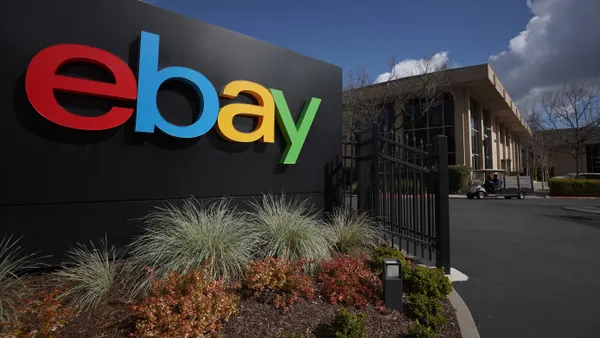Dive Brief:
-
Macy's announced last week in Shanghai, China that it will debut its own Chinese e-commerce site next year after building a presence in the country via Chinese web giant Alibaba's Tmall Global.
-
Macy’s began selling through a Tmall Global storefront last year, offering about 1,500 products from brands such as Tommy Hilfiger and Fossil.
-
Macy's also has amassed more than 300,000 followers through Tmall Global's social media channels and also has reached out to young Chinese consumers through special events, such as a live online broadcast about New York Fashion Week, which led to about 150 million related posts to Chinese social network Weibo, Macy's said.
Dive Insight:
This is ideally how Alibaba's partnerships with U.S. retailers and e-commerce players wanting access to China's populace should work. Alibaba helps them gain a foothold in the world's largest market, doesn't do anything to inhibit their growth and the retailer builds a big enough following in China that the Alibaba partnership becomes a launching pad for other ventures. It seems to be Alibaba's aim with foreign brands both large and small.
Macy's has had a pretty lousy year, closing stores following poor sales and seeing its longtime CEO step down. It has badly needed to find new areas of growth, and as difficult as it can be to succeed in China (and have enough confidence there to expand), it seems that Macy's has made it happen.
Either that, or the largest apparel seller in the U.S. market is taking a serious gamble. Macy's hasn't disclosed sales numbers, leaving open the possibility that it may not be as successful as we might think, although Alibaba claims Macy's is one of the most popular sellers on the Tmall platform.
It doesn't sound like Macy's is planning to open brick-and-mortar stores in China, which is probably for the best for a retail chain that is trying to cut costs back home. E-commerce in general might be the best focus overall for Macy's energies, and recently, it has done some small but interesting things on that front in the U.S., including partnerships with beGlammed, and Satisfi and IBM.
Macy's pointed out in announcing its Chinese e-tail site plans that it could be difficult to maximize the potential market in China without brick-and-mortar locations, so it eventually could go that route, but needs to be careful. Maybe having a few key brick-and-mortar locations could help its efforts in China, but hopefully Macy's remembers the lessons it learned the hard way in the U.S. about getting too big too quickly and aggressively.













